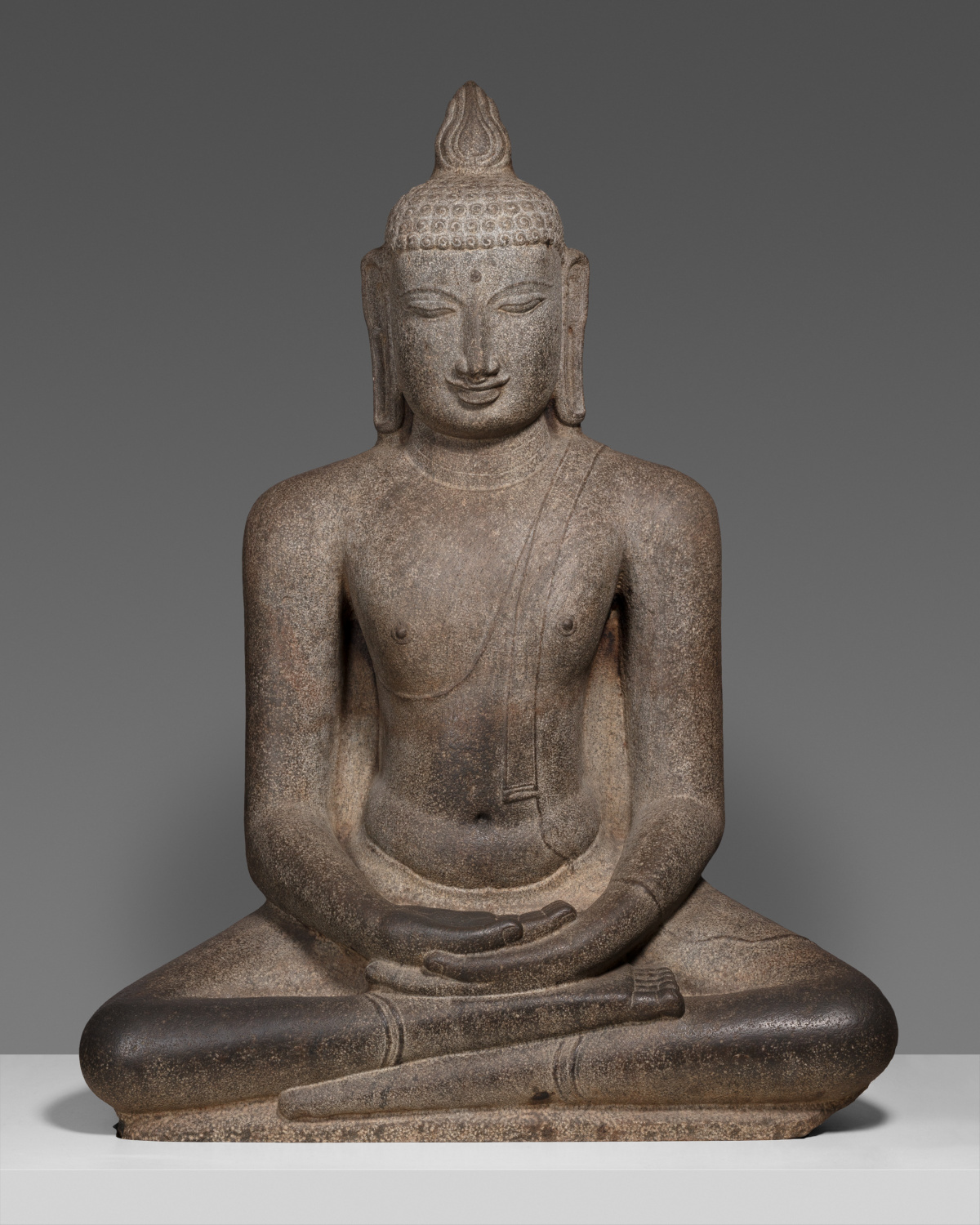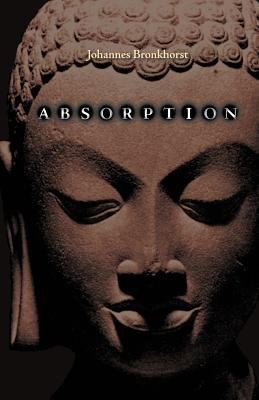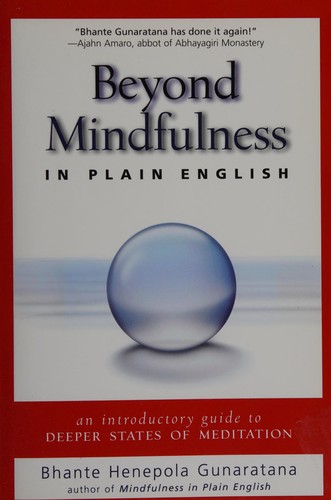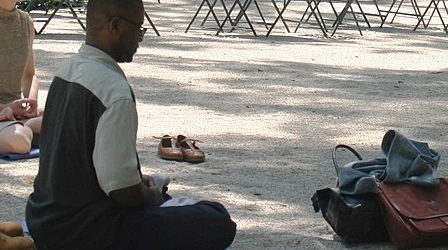Samādhi
Subscribe to this topic via: RSS
“Concentration” is when the mind becomes fully immersed in the activity of meditating.

The flame atop this twelth-century granite Buddha is a symbolic representation of his attainment of Jhāna. (Image courtesy of the Art Institute of Chicago)
Table of Contents
Books (7)
Featured:
-
200 pages[recommended but under copyright]
See also:
Canonical Works (56)
Featured:
-
⭐ Recommended
Remote jungle-thicket resting places in the forest are hard to endure, seclusion is hard to practise, and it is hard to enjoy solitude.
-
⭐ Recommended
A fascinating description of the four jhānas and nirodha as the cessation of pain, sadness, pleasure, happiness, and equanimity respectively.
-
But what is that ultimate splendor compared to which no other splendor is finer?
-
⭐ Recommended
But when gold is freed from these five defilements, it is malleable, wieldy, and luminous, pliant and properly fit for work.
-
⭐ Recommended
Suppose a person was to catch six animals, with diverse territories and feeding grounds, and tie them up with a strong rope…
-
Just as pain arises as an affliction for a healthy person, even so the attention to perceptions dealing with directed thought that beset me was an affliction for me.
-
… while I was seeking one door to the Deathless, I have come—all at once—to hear of eleven!
-
Though some may say, ‘[Sensual pleasure] is the supreme pleasure and joy that beings experience,’ I would not concede this to them. Why is that? Because there is another kind of happiness more excellent and sublime than that
-
⭐ Recommended
There is a way of developing immersion further
-
How can Nibbāna be “blissful” if it’s the cessation of feeling?
-
Ānanda asks the Buddha about a deep state of meditation where all normal perception has ceased, but there is still perception. The Buddha affirms that such a state exists. Ānanda puts the same question to Sāriputta, and gets the same answer.
-
As for the person who has neither serenity nor discernment: in order to get those skillful qualities, they should apply intense enthusiasm…
-
Reverends, an unethical person, who lacks ethics, has destroyed a vital condition for right immersion.
-
Percipient in this way, too, one is not sensitive to that dimension.
-
Householder, the limitless release of the heart, and the release of the heart through nothingness, and the release of the heart through emptiness, and the signless release of the heart: do these things differ in both meaning and phrasing? Or do they mean the same thing, and differ only in the phrasing?
-
Ānanda asks Sāriputta about the perception within the enigmatic “ninth jhāna.”
-
The pain & distress dependent on sensuality do not exist at that time.
-
Mendicants, a mendicant practicing mindfulness of breathing who has five things will soon penetrate the unshakable.
-
Reverends, do you see this large tree trunk?
-
… having seen with wisdom, their defilements come to an end. And they understand that with wisdom. To this extent the Buddha spoke of the one freed by wisdom
-
Bhikkhus, the formless is more peaceful than the form realm, and cessation is more peaceful than the formless.
-
… by not grasping anything he should remain undisturbed.
-
The meditator skilled in immersion and in remaining in it is the foremost…
-
the Dhamma for abandoning all
-
… based upon virtue, established upon virtue, a bhikkhu develops and cultivates the seven factors of enlightenment…
-
A sutta on how samādhi is squandered by unwise attention.
-
Bhikkhus, I do not see even one other thing that, when developed and cultivated, leads to the abandoning of the things that fetter so effectively as this
-
Just as a fine thoroughbred steed…
See also:
Readings (30)
Featured:
-
So long as researchers are investigating “meditation” in the abstract, they will miss out on the process by focusing too much on the goals. They will assume that the “goal” is a particular state that can be attained and stabilized, and will fail to understand the various techniques that are required for getting there in the first place.
-
A study of related āgamas and suttas dealing with meditation on emptiness, particularly as a gradual progression of stages, that ultimately leads to liberating insight.
-
… samādhi power was, among other uses, employed to enhance the meditator’s ability to kill others. This article focuses on the abuse of samādhi power within Imperial Japan (1868-1945) with the express hope that once exposed and understood, its abuse will never be repeated.
-
This paper aims to differentiate the variety of animitta states, and to gain some understanding of their nature, drawing on the Pali suttas, Abhidhamma, and commentaries.
-
what leads to imperturbability are the insights that:
- sensual pleasures are defiling and obstructing,
- material forms are made up of the four elements,
- the above two and perceptions of them are impermanent.
-
🥇 Best of
An encyclopedic overview of the various kinds of samādhi and their place on the path.
-
From pre-Buddhist antecedents via the Buddha’s own mastery of absorption until modern times, different constructs of absorption have developed which show considerable variation in terms of their concentrative depth and subjective experience.
-
I myself believe there is strong evidence in the Nikāyas that the jhānas become an essential factor for those intent on advancing from the stage of once-returning to that of non-returner.
-
It cannot be stressed too strongly that the ariyan (Noble) Eightfold Path, culminating in sammāsamādhi defined as the four jhānas, is the exclusive province of the ariyasāvaka. It is beyond the knowledge and experience of the puthujjana or outsider, despite what is said in popular books
-
… the fourth meditative absorption, this is just like that tree gradually blooming.
8 pages -
🥇 Best of
You might wish to drink the nectar of calm abiding…
-
four cases of a dhyāna practitioner who is:
- Increasing (熾盛) but thinks they are decreasing (衰退)
- Decreasing but thinks they are increasing
- Increasing and truly knows they are increasing
- Decreasing and truly knows they are decreasing
5 pages -
A brief but insightful explanation of the Upakkilesa Sutta.
See also:
Audio/Video (5)
Featured:
See also:



